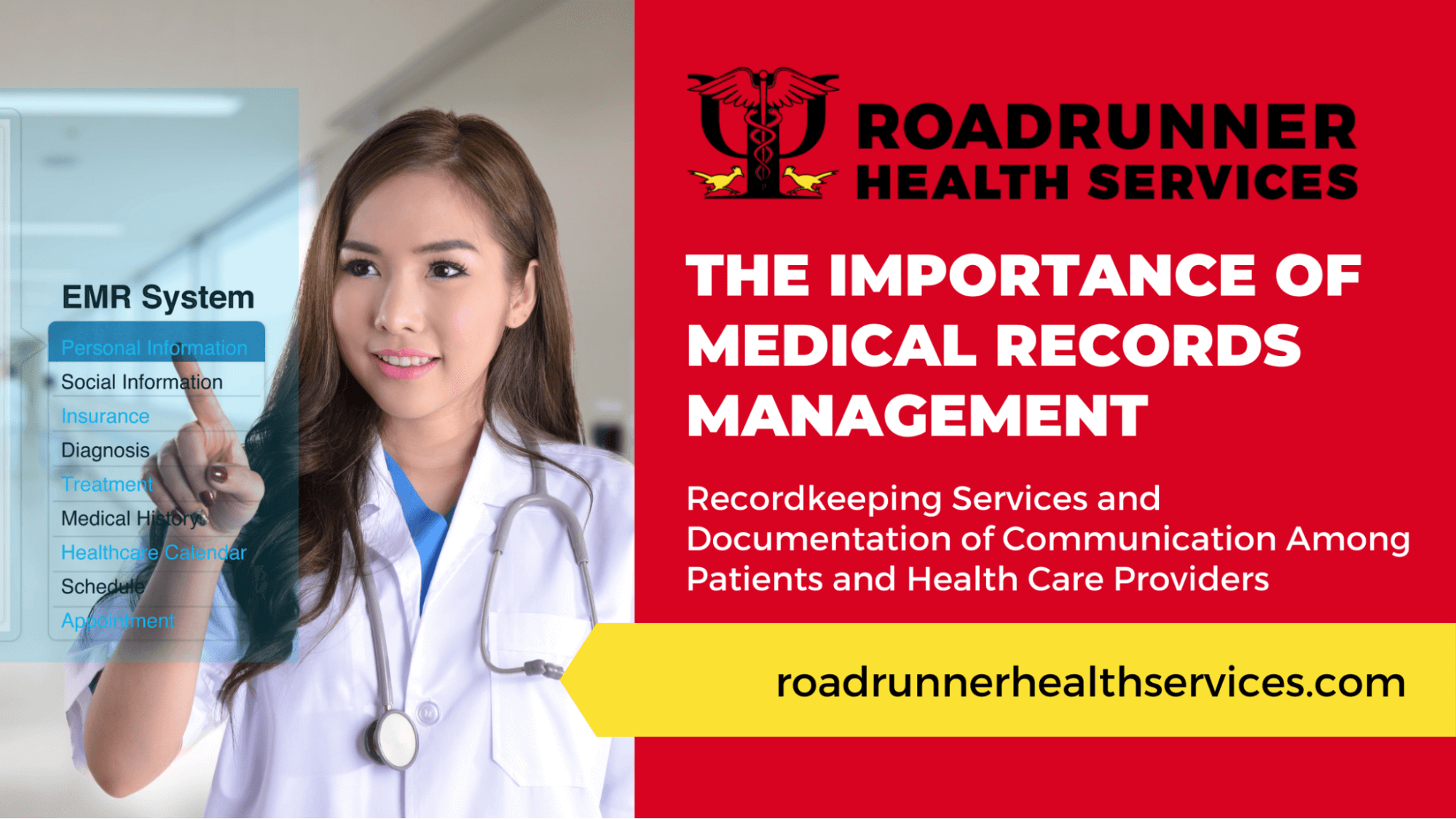It’s often said that Opioid addiction has become an epidemic among millions of Americans. More than...
The Importance of Medical Records Management

Record keeping Services and Documentation of Communication Among Patients and Health Care Providers
In recent years, medical records management has evolved into the digital sphere, allowing for more efficiency. However, not all institutions are adopting these standards. Doing so puts both the institution and its patients at risk. Learn how sufficient medical records management helps streamline your facility and prevent you from compromising patient health.
What is Medical Records Management?
Medical records management involves everything connected to the creation, use, handling, and disposal of patient records. This includes physical and electronic records regarding a patient's history, diagnostic test results, medications, etc. As soon as a form is created, providers must adequately secure it. Once its retention period ends, it must be appropriately destroyed.
There is a complex system of rules and regulations regarding the data lifecycle of patient records, and for good reason: mismanaged records put patients and your facility at risk.
Why is Medical Records Management Important?
Well-kept medical records make life easier for the healthcare provider and the patient. Having a comprehensive view of a patient's medical history makes it easier for the physician to deliver appropriate treatment. Having up-to-date, well-stored medical records can be the difference between life and death if a physician needs to make a quick medical decision.
On the other hand, poor medical records management can have dire consequences. Record mismanagement can lead to life-threatening events such as medication errors, treatment lapses, and missed diagnoses, among other things. Medical record mismanagement creates more vulnerabilities for both those in your care and your institution. Savvy medical records management is supported by
- Training all employees in security procedures regarding medical records
- Limiting access to medical records facilities
- Anticipating security threats
Taking steps like these can help your facility avoid lawsuits and secure ongoing patient safety.
What is EMR and EHR?
It's important to learn to distinguish between an EMR (electronic medical record) and an EHR (electronic health record). An EMR is a record that usually resides in a single provider's office, and providers mainly use this for diagnosing a patient. On the other hand, an EHR is a more comprehensive view of a patient's overall health. Healthcare organizations create EHRs intending to share them across organizations, allowing patients' medical histories to move with them regardless of the intended specialist, lab, or institution.
The electronic format of both EMRs and EHRs enables them to be easily shared and kept.
The Benefits of Medical Records Management
Maintaining an up-to-date system of creating, storing, and disposing of medical records safeguards your facility. Efficient patient care involves superior medical record management, which means your methods should evolve with the times. Some benefits of sufficient records management are
- Improved record location and tracking
- Preservation of historical/vital information in case of disaster
- A transparent paper trail in case of legal action
- Ease of transferring information between offices for quicker patient care
Improved medical record-keeping streamlines your facility, boosting employee efficiency and lowering litigation/malpractice risks. As a solid healthcare provider, Roadrunner Health Services offers this service to facilities across New Mexico, allowing you to make your facility even more profitable.
Risks of Unmanaged Medical Records
You may not realize the significant risk of poorly managed medical records until you're in the midst of a problem. Protect yourself from:
- Delays in treatment: Patients will need urgent medical intervention in some cases. What if your institution can't find their medication history in a timely manner? A well-organized record system will prevent unnecessary delays in treatment and can prevent complications or even death.
- Risk of looking unprofessional: When healthcare providers themselves don't know where to find patient information, the institution seems incompetent and decreases patient trust. Having records adequately sorted and stored is a simple way to maintain professional standards.
- Costly loss of efficiency: If you don't keep your records straight, it's increasingly easy for employees to waste time on duplicated efforts, billing errors, or even an inability to complete required tasks. In the case of maintaining paper records, your institution will need to invest in a physical storage area, even resulting in purchasing additional office space.
- Risk of legal ramifications: Even in the best situations, things can go wrong. In the case of legal action, do you want gaping holes where factual information should be? Poorly managed clinical records leave you open to claims of malpractice or ineptitude.
The Roadrunner Health Services Quality Promise
Our multigenerational healthcare professionals know how to handle records with the appropriate care. Do not put your facility at risk by failing to value medical records management as a critical or necessary function.
Other RHS services:
Further streamline your facility with our other services, including but not limited to:
- Detox services
- Suicide prevention with 24-hour on-call response
- Mental health intake evaluation tools, assessments, counseling, and more
Our accumulated decades of boots-on-the-ground experience have crafted professionals that care with compassion. Hire the Roadrunner Health Services team to ensure your medical record management goes smoothly and efficiently.



